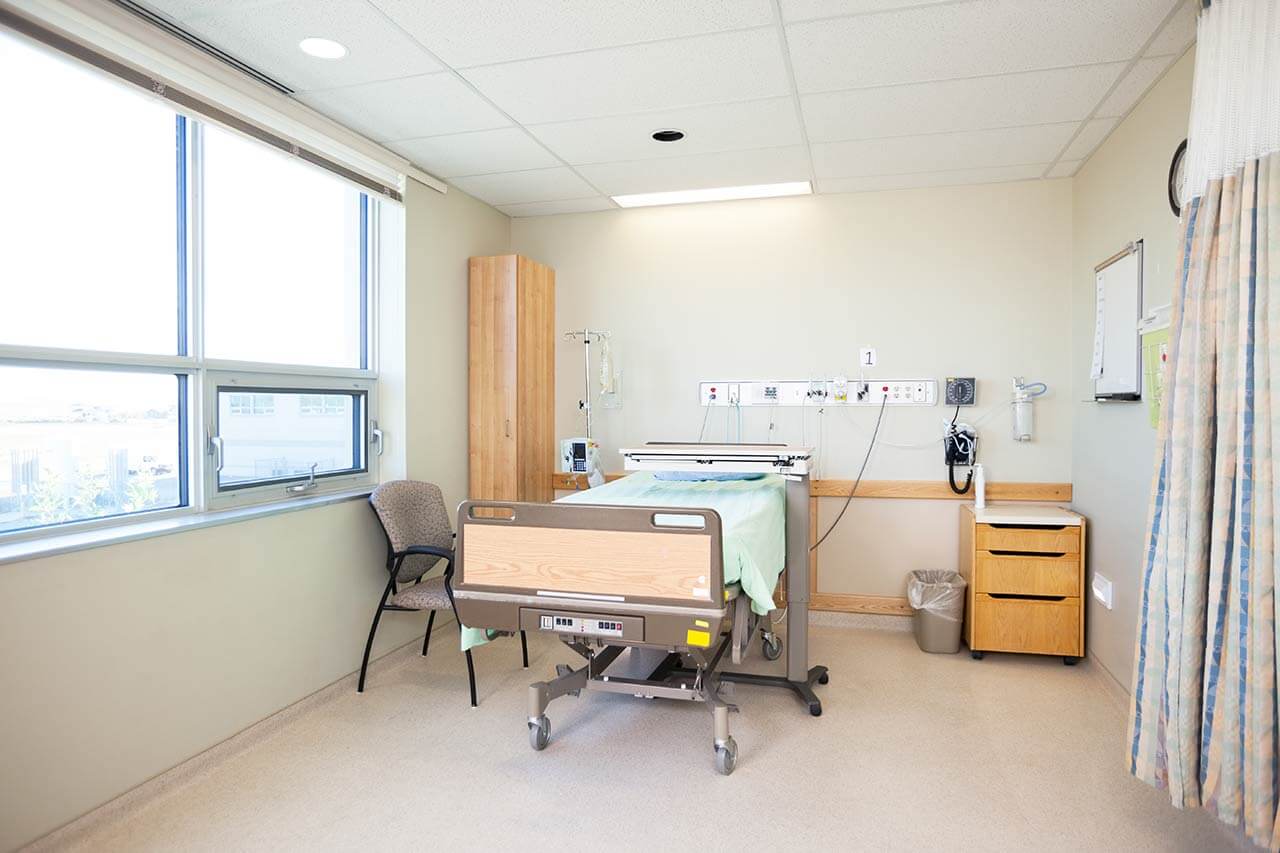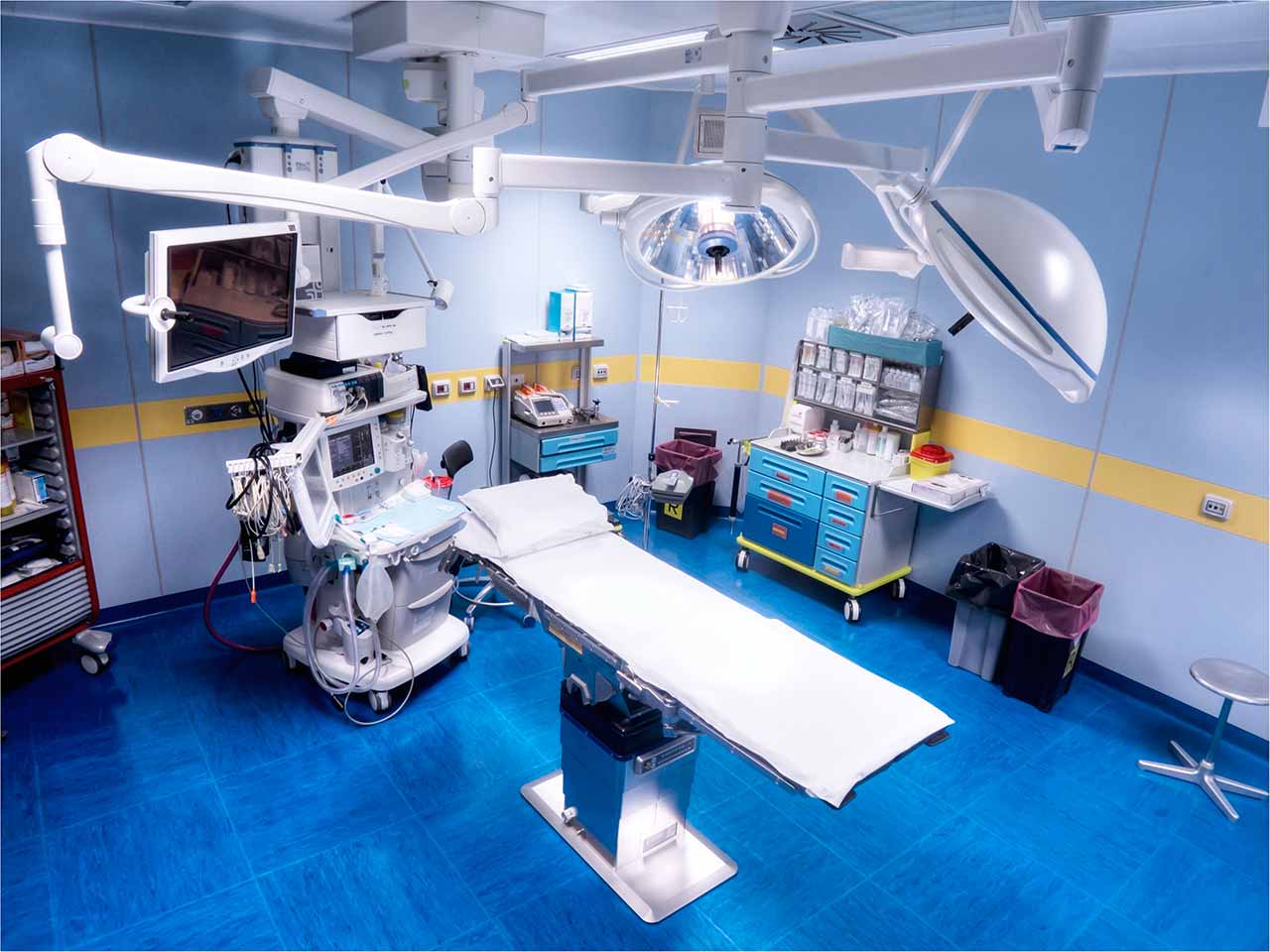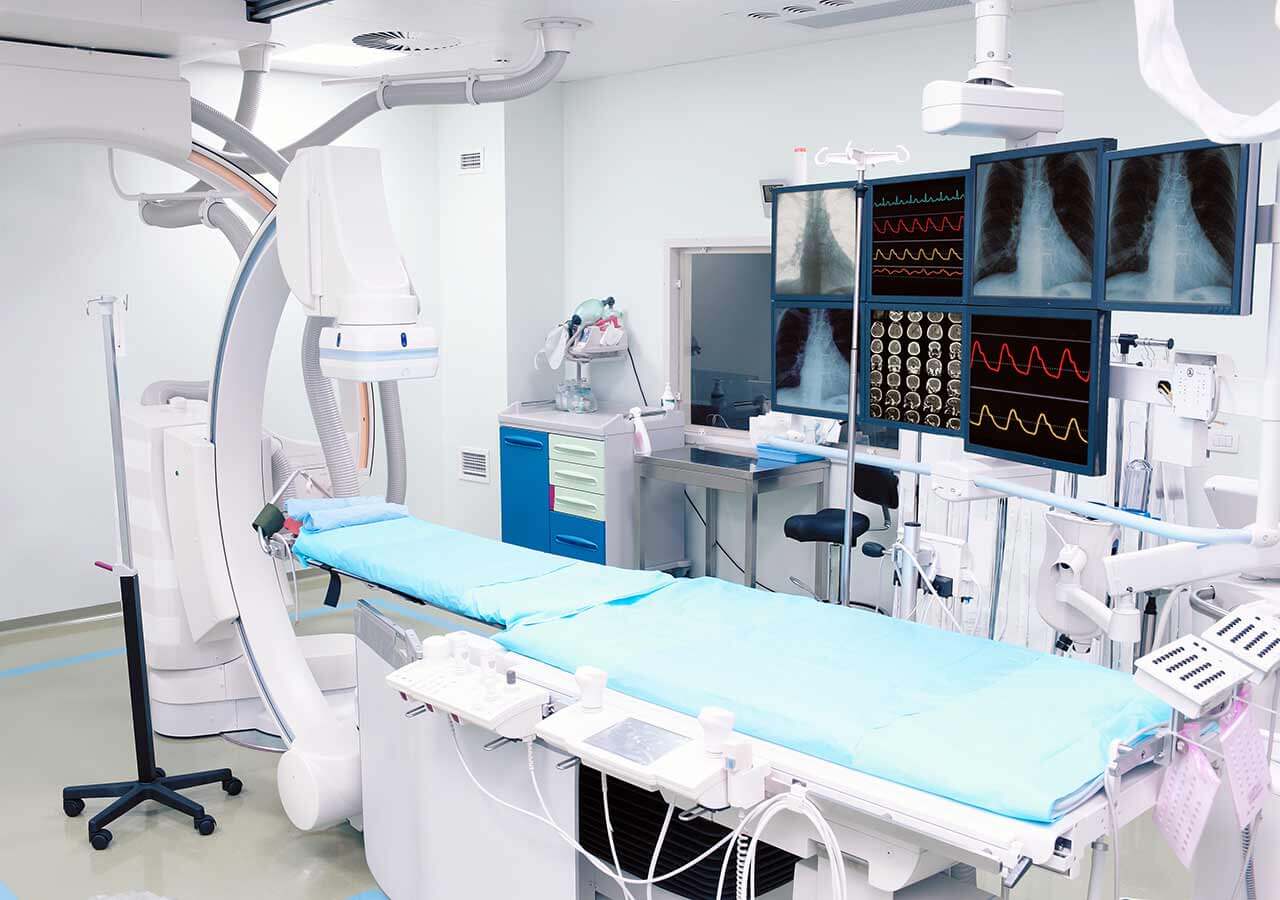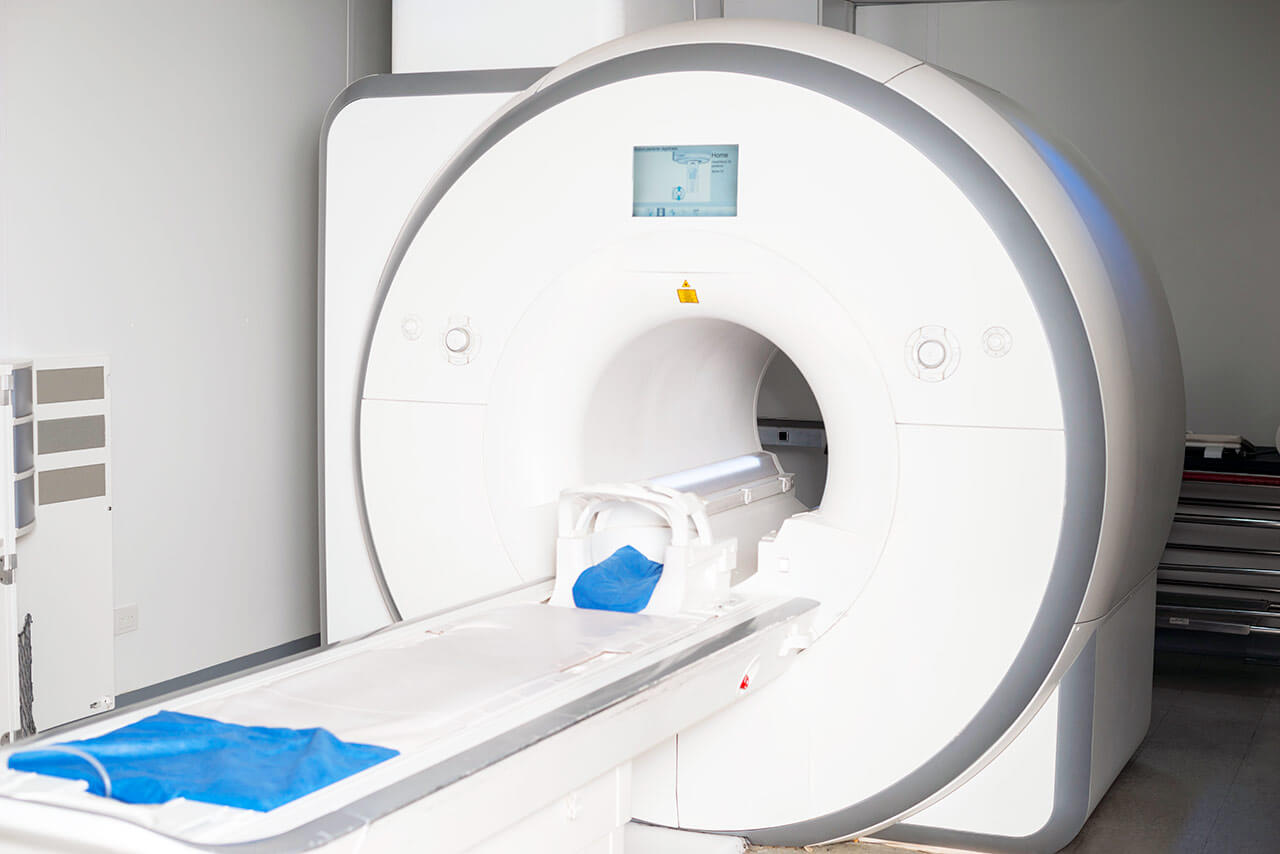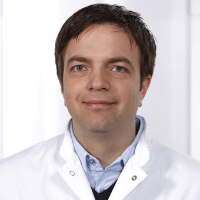
The program includes:
- Initial presentation in the clinic
- clinical history taking
- review of medical records
- physical examination
- laboratory tests:
- complete blood count
- general urine analysis
- biochemical analysis of blood
- inflammation indicators (CRP, ESR)
- indicators blood coagulation
- ultrasound examination of the breast
- preoperative care
- partial resection of the breast abscesses
- histologically examination of the remote tissues
- symptomatic treatment
- control examinations
- the cost of essential medicines and materials
- nursing services
- full hospital accommodation
- explanation of future recommendations
Required documents
- Medical records
- Ultrasound scan (if available)
Service
You may also book:
 BookingHealth Price from:
BookingHealth Price from:
About the department
The Department of Mammology at the St. Anna Hospital Herne offers the full range of preventive examinations, comprehensive diagnostics and effective treatment of breast diseases. The department's doctors provide treatment to patients with benign and malignant breast pathologies, but the primary focus of clinical activity is on breast cancer treatment, which is one of the most common types of cancer in women. Medical care meets the requirements of the German Cancer Society (DKG). Each woman receives interdisciplinary care focused on her individual needs and wishes. The treatment involves the use of the very latest techniques in order to ensure the best results. A good psycho-emotional state of a woman is important for the department's specialists, and therefore competent psychologists are often involved in the therapeutic process. The Head Physician of the department is Dr. med. Valentin Menke.
The first stage of treatment is a personal consultation with a doctor who carries out a clinical examination, studies the patient's medical history and prescribes the necessary complex of examinations to confirm or exclude breast cancer diagnosis. If diagnostic data confirms the presence of oncology, doctors begin treatment planning. The medical facility regularly holds interdisciplinary tumor boards, during which each clinical case is discussed. The board is attended not only by breast specialists and gynecologists, but also by oncologists, radiologists, radiation therapists and other specialists. As a rule, monotherapy for cancer is ineffective, so doctors combine several therapeutic methods. Prior to starting treatment, the doctor tells the patient in detail about further measures and the expected treatment outcome.
In most cases, the main treatment is surgery. In 80% of cases, the department's doctors manage to perform an organ-preserving surgical procedure without total mastectomy. However, in the advanced stages of breast cancer, mastectomy is often required. Such an operation is also indicated for women with a high risk of cancer recurrence. Mastectomy is followed by reconstructive surgery for the restoration of the attractive appearance of the breasts. The shape of the breast is restored with the help of silicone implants, the woman's own tissues and lipofilling technique.
As a rule, the treatment regimen also includes additional conservative methods, the main of which are chemotherapy and radiation therapy. Depending on the particular clinical case, antihormonal therapy, antibody therapy, electrochemotherapy, and maintenance therapy may also be used. The patients with incurable types of breast cancer receive palliative care to relieve pain and improve their quality of life.
The department's service range includes:
- Surgical treatment of breast cancer
- Breast-conserving surgery
- Mastectomy (total mastectomy)
- Nipple-sparing mastectomy
- Reconstructive breast surgery using silicone implants, autologous tissues and lipofilling techniques
- Conservative treatments of breast cancer
- Classical chemotherapy
- Electrochemotherapy
- Radiation therapy
- Antihormonal therapy
- Antibody therapy
- Maintenance therapy
- Palliative care
- Other therapeutic options
Photo of the doctor: (c) St. Anna Hospital Herne
About hospital
According to the famous Focus magazine, the St. Anna Hospital Herne ranks among the best medical facilities in North Rhine-Westphalia!
The hospital first opened its doors to patients on September 27, 1901, and therefore it is rightfully proud of its long history and successful treatment results. Initially, the hospital had only 40 beds, and today it offers 380 beds for the accommodation of inpatients. The patients benefit from perfectly equipped diagnostic rooms, operating rooms and treatment rooms, in which therapeutic procedures and surgical interventions of any severity are performed.
The hospital has over 1,400 employees. The doctors of the medical facility annually admit about 32,100 inpatients, and more than 56,300 outpatients receive high-quality medical care. The specialists provide services to patients from their region and other federal states of Germany, as well as to patients from other countries of the world. The medical team of the hospital strives to provide each patient with optimal treatment in the most comfortable conditions and in a friendly environment.
The hospital specializes in the following medical fields: orthopedics and traumatology, general and abdominal surgery, internal medicine, gastroenterology, oncology, gynecology, obstetrics and mammology. Each of the medical directions is represented by a specially trained team of doctors who possess deep knowledge and rich clinical experience in their area of specialization. It should be noted that the Department of Orthopedics and Traumatology is one of the largest and best in the whole of Germany. Other departments of the hospital also demonstrate excellent results, which are confirmed by various quality certificates, including certificates of the German Cancer Society, the German Hernia Society, and the German Spine Society.
Photo: (с) depositphotos
Accommodation in hospital
Patients rooms
The patients of the St. Anna Hospital Herne are offered accommodation in single rooms and rooms designed for several people. All rooms are bright, have a modern design and all the necessary amenities. The furnishings of the standard patient room include an automatically adjustable bed, a bedside table with a locker, a wardrobe, a table and chairs, a TV, and a telephone. Each patient room has an ensuite bathroom with shower and toilet.
Patients can also choose to stay in enhanced comfort rooms. These rooms provide patients with a comfortable bed, a refrigerator, a safe and a TV with a DVD player. If desired, one can also connect to Wi-Fi. The patient can also independently adjust the brightness of the lighting in the patient room. In addition, the enhanced comfort room has a glazed balcony with a seating area.
Meals and Menus
The patients of the hospital are offered tasty and healthy three meals a day. The patients have a choice of buffet meals for breakfast and dinner, and there is a choice of several set menus for lunch. Patients are offered tea, coffee, mineral water and juices at any time.
If for some reason you do not eat all foods, you will be offered an individual menu. Please inform the medical staff about your food preferences prior to treatment.
Further details
Standard rooms include:
Television
You can listen to 4 radio programs and watch 30 television programs through the headphones at the patient's bed.
Religion
Religious services are available upon request.
Accompanying person
Your accompanying person may stay with you in your patient room or at the hotel of your choice during the inpatient program.
Hotel
You may stay at the hotel of your choice during the outpatient program. Our managers will support you for selecting the best option.
